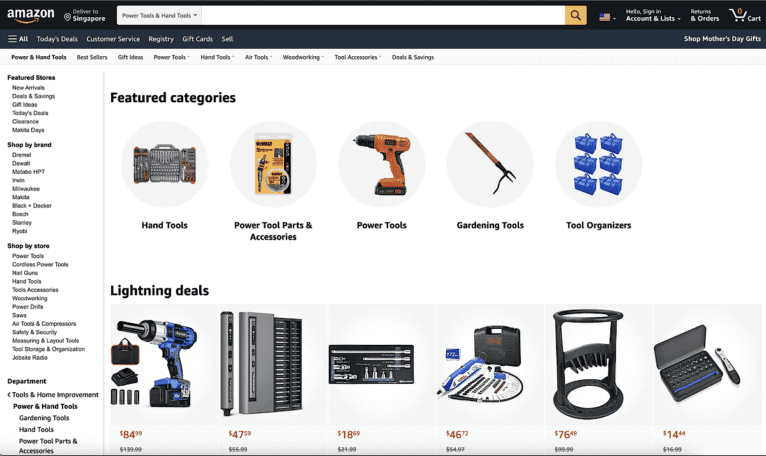As more businesses and brands shift to a digital-first approach, having a strong online presence has become crucial for success. In the world of search engine optimization (SEO), understanding how your website performs in terms of traffic, rankings, and user behavior is key to driving more organic traffic and increasing conversions.
Fortunately, there are countless SEO analytics tools available that can help unlock the secrets to online success. Whether you’re looking for keyword research data or site audit reports, these top tools will provide you with all of the insights needed to optimize your website’s performance and increase visibility on search engines.
In this article, we’ll explore some of the most popular SEO analytics tools available today so that you can make informed decisions about which ones are right for your business needs.
Keyword Research: Finding the Right Words to Rank
Keyword research is an essential element of any successful SEO strategy. It involves identifying the right words and phrases that people use to search for products or services in your industry and then incorporating them into your content to increase visibility on search engines. Finding relevant keywords takes time, effort, and expertise but pays off in driving more organic traffic to your website.
Using SEO analytics tools can make keyword research easier and more efficient by providing data on search volume, competition level, and popular long-tail phrases while also offering suggestions on related terms you may not have considered.
By analyzing this data alongside user behavior metrics such as bounce rate or pages per session from Google Analytics or other tracking tools gives invaluable insights to improve overall rankings online.
In conclusion, investing in keyword research with reliable SEO analytics tools will help identify areas of improvement within the digital realm’s global ecosystem inevitably resulting in driving sales through increased organic traffic flowing toward your website.
On-Page Optimization: Making Your Site Search Engine-Friendly
On-page optimization, as the name suggests, refers to techniques that are implemented directly on a website to improve its ranking in search engine results pages (SERPs). This includes optimizing title tags and meta descriptions, creating high-quality content, improving page load speeds and mobile responsiveness, and ensuring proper internal linking structure.
These steps not only help search engines better understand what a site is about but also provide valuable information for users who may be searching for similar content.
Once these optimizations have been made, using SEO analytics tools can bring further insights into how well your website is performing. Tools such as Google Analytics or SEMrush can provide traffic data including demographics and behavior patterns of visitors to your site. Other programs such as Ahrefs or Moz offer detailed keyword research data so that businesses can optimize their websites based on different keywords related to their niche.
Overall, working on-site optimizations alongside effective analytics provides an important foundation for any online strategy looking toward success through increased organic traffic and conversions.
Backlink Analysis: Measuring Your Site’s Authority and Trustworthiness
Backlink analysis is a crucial part of understanding your website’s authority and trustworthiness when it comes to SEO. Backlinks are links from other websites that direct users to your site, and the more high-quality backlinks you have, the better search engines will view your website.
By analyzing these backlinks, you can gain insight into where they are coming from and whether they are helping or hurting your rankings in search engine results pages (SERPs). Using tools such as Ahrefs and Moz’s Link Explorer allows you to see how many total backlinks you have, which sites are linking to yours, what the anchor text (the text used for the link) says about your site’s content, and more.
This information not only helps with improving SEO efforts but also provides valuable competitive intelligence by giving a detailed look at the strengths and weaknesses of other websites in similar niches or industries.
Remember that while quantity is important when it comes to backlinks, quality holds even greater weight – so focus on building relationships with reputable sources rather than just blindly acquiring links.
Ultimately, incorporating regular backlink analysis into your SEO strategy can help improve keyword rankings over time by increasing domain authority and showing search engines that trustworthy sites see value in linking back to yours.
Regularly analyzing backlink profiles will help determine whether any drastic changes may arise that could hurt overall ranking strategies based on changes placed within algorithms or trends happening online overall.
By implementing these methods alongside useful analytic tools like Ahrefs’ Site Explorer an analyst can make informed decisions about campaigns best suited for organic traffic flow regarding each webpage.
Competitor Research: Staying Ahead of the Game
In today’s highly competitive online landscape, keeping tabs on your competitors is essential to staying ahead of the game. Competitor research involves analyzing the strengths and weaknesses of your main rivals and studying their marketing strategies. By doing so, you gain valuable insights that can help inform your digital marketing tactics.
From monitoring their website traffic and social media engagement to tracking their keyword rankings and backlink profiles, there are various tools available that can provide you with in-depth competitor analysis data. This information enables you to identify gaps in the market, find growth opportunities, and differentiate yourself from your competitors.
In summary, investing time and resources into competitor research should be a priority for any business looking to succeed online. By leveraging SEO analytics tools and other instruments at your disposal, you can unlock key insights into what works (and what doesn’t) within your industry – giving you an edge over competing brands.
Site Audit: Fixing Technical Issues That Could Affect Your Rankings
A site audit is a critical process that helps to identify and fix technical problems on your website. Technical issues such as broken links, missing alt tags, slow page speed, duplicate content, and other errors can significantly affect your SEO rankings.
Site audit uses specialized tools to crawl through your website’s architecture and find these errors so that they can be resolved. Fixing these technical issues can improve the user experience of your site visitors, which in turn improves conversion rates.
Additionally, search engines prefer websites with clean architectures without any technical hitches; therefore investing in fixing them will undoubtedly increase organic traffic to your site. Overall the practice of conducting regular site audits should become an essential part of any organization’s digital marketing strategy as it identifies areas for optimization improving customer interactions whilst also maintaining brand reputation online all affecting ROI at scale including lowering bounce rate given users who visit a more organized site are less likely to leave immediately increasing engagement making it easier for people browsing around to convert into customers.
User Behavior: Understanding Your Audience’s Interactions with Your Site
Understanding user behavior is a crucial aspect of driving online success. By analyzing your audience’s interactions with your site, you can gain valuable insights into what they like and dislike about your website. This information can help you optimize your site to better meet the needs and preferences of your target audience, resulting in increased engagement, conversions, and customer loyalty.
One way to analyze user behavior is through SEO analytics tools. These tools provide detailed reports on various metrics such as bounce rates, session duration, click-through rates, and more. By understanding these metrics, you can identify areas where users may be encountering issues or experiencing friction within the conversion funnel. Using this knowledge to make actionable improvements to your website’s design and content can translate into significant increases in traffic and revenue over time.
Ultimately, using SEO analytics tools allows you to stay ahead of the curve by keeping up with changing consumer behaviors and preferences. With the right data at hand, businesses can make informed decisions about their digital strategies that will lead to long-term success in today’s competitive online landscape.
Reporting and Tracking: Measuring Your Progress and Success
Measuring progress and success is essential for any business, and this holds especially true for digital marketing initiatives. Reporting and tracking your SEO efforts is vital to determining whether or not you’re achieving the desired results. By utilizing analytics tools such as Google Analytics, SEMrush, Moz Pro, or Ahrefs, digital marketers can collect valuable data related to keyword rankings, search volume trends of specific keywords over time as well as user behavior on their website.
SEO analytics tools will help provide insights into how users interact with a website from referral sources or social media platforms that drive the most traffic resulting in higher conversion rates. These insights allow businesses to optimize their online presence fully by improving upon what’s working while changing aspects that aren’t currently effective.
It’s important to remember that each report delivered by these analytics tools requires careful analysis before taking action on them. Having access to all this critical information allows businesses & brands to make more informed decisions regarding optimization strategies and ultimately achieve incremental improvement towards online dominance through continued tracking and reporting of key performance indicators (KPI).





